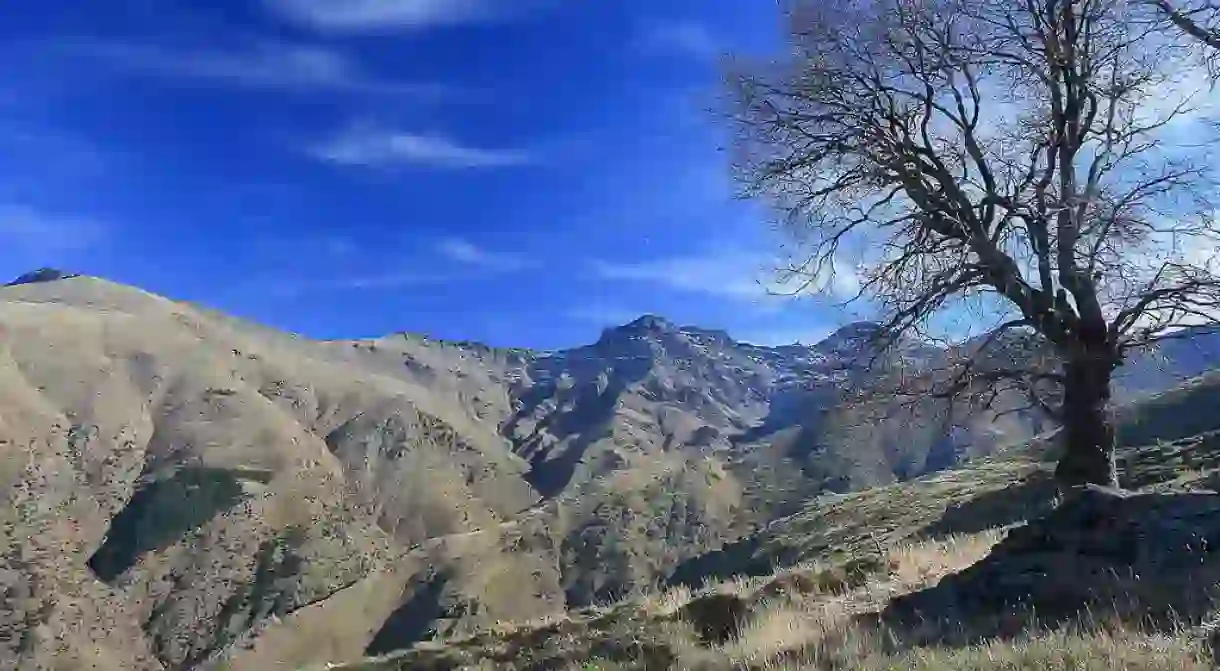10 Things to Know Before Visiting Spain's Sierra Nevada Natural Park

Covering an area of over 850 square kilometres, Andalusia’s Sierra Nevada natural park is the largest in Spain. It’s also home to Europe’s most southerly ski resort and some of Spain’s highest mountains. Read on for ten things to know before visiting this spectacular park.
It’s easily reachable from Granada
If you’re spending a few days in the enchanting city of Granada, a day trip to this amazing park is easily doable. Starting points for most of the best bike rides and treks are less than an hour’s drive away and there are regular buses to the town of Sierra Nevada itself. Daily buses also serve the beautiful Alpujarra region.
It’s home to mainland Spain’s highest mountain…
The Sierra Nevada is home to the 3,478-metre Mount Mulhacén, mainland Spain’s highest peak. Trekking to the top of this beast is achievable in a day, either from Capileira or Trevélez in the Alpujarra, or from Hoya de la Mora on the mountain’s other side; but if you want to take your time, there are refuges close to the summit for overnight stays.

…and its third highest
The Sierra Nevada’s second highest peak, the 3,396-metre Veleta, is mainland Spain’s third highest mountain. From Hoya de la Mora, it’s a relatively undemanding two-hour hike to Veleta’s distinctive peak, which can be seen from many spots in Granada city centre. The Sierra Nevada’s ski resort is located on the mountain’s northern flank.
The Alpujarra region is beautiful
The spectacular Alpujarra region of the Sierra Nevada inspired Gerald Brenan to write “South from Granada”, his most famous book about Spain. It’s a cluster of tiny whitewashed villages, spread along the park’s southern extremity like snowflakes that won’t melt. They’re all ridiculously beautiful, but Capileira, Bubión, Trevélez and Pampaniera are must-visits.

Trevélez is known for its jamon
Aside from its unfair share of natural beauty, there’s another reason why you should visit Trevélez, the highest village of the Alpujarra. Such is its altitude (1,476 metres), the climate here is perfect for curing hams; no wonder, then, that it produces some of the finest jamons in Spain. Be sure to order a plate with your post-trek beer.
The Cumbres Verdes is lovely
If you fancy some chilled-out trekking, head to the lovely Cumbres Verdes area of the park, located just outside Granada, near the small town of La Zubia. There are plenty of undemanding tracks for hiking and biking here, as well as beautiful picnic spaces equipped with tables and BBQs.

It’s home to Europe’s most southerly ski resort
Such is the altitude of the Sierra Nevada’s highest peaks that Europe’s most southerly ski resort is found on the northern slopes of Veleta. More than a hundred kilometres of track is spread over 124 pistes that cater to all levels of ability. The season usually runs from November until early May.
The main resort town is worth a visit
Even if you’re not here to ski, a trip to the resort town of Sierra Nevada itself is well worth it. Located in the heart of the park, about an hour’s drive from Granada, its many bars and restaurants offer terraces with spectacular mountain views, making it a perfect lunch or dinner spot.

It’s home to a rich variety of flora…
Hiking and biking in the Sierra Nevada will give you plenty of opportunity to admire the park’s beautiful flora. Its rugged, mountainous terrain is home to around 2,100 plant species, 116 of which are categorised as endangered. Sixty of the species found here grow nowhere else on earth.
…and fauna
If you’re lucky, you’ll also spot some of the local fauna when out exploring. Spanish Ibex are perhaps most visible and move across ankle-snapping terrain with balletic ease. Other species that call the Sierra Nevada their garden include wild boar, badgers and wildcats and the Golden and Bonelli’s eagles.














